Key Takeaways
1. Existence Precedes Essence: You Define Yourself Through Choices
"What you are (your essence) is the result of your choices (your existence) rather than the reverse."
Self-Definition Through Action. Existentialism fundamentally rejects the notion that humans have a predetermined nature or destiny. Instead, individuals continuously create themselves through conscious choices and actions. This radical perspective means that human beings are not born with a fixed identity but constantly construct who they are.
Key Implications of Choice:
- No predetermined human nature exists
- Each decision shapes personal identity
- Individuals are responsible for creating meaning
- Personal growth is an ongoing, dynamic process
Transformative Power of Choice. By emphasizing that existence precedes essence, existentialists argue that humans are not limited by predetermined characteristics but are free to reinvent themselves continuously. This perspective empowers individuals to transcend social expectations, biological constraints, and historical circumstances through deliberate, conscious choices.
2. Freedom is Fundamental, But Comes with Total Responsibility
"We are without excuse."
Radical Personal Accountability. Existentialist freedom is not a comfortable concept but a demanding philosophical stance that requires total personal responsibility. When individuals realize they have complete agency in shaping their lives, they must also accept that every choice carries profound consequences for which they are entirely accountable.
Dimensions of Existential Freedom:
- Freedom to choose is universal
- Each choice defines personal identity
- No external authorities can absolve individual responsibility
- Moral choices reflect fundamental human values
Psychological Challenge. This understanding of freedom can generate significant anxiety, as it removes comforting illusions of predetermined paths or external justifications. Individuals must courageously confront the reality that they are solely responsible for creating meaning and value in their lives.
3. Authenticity Means Embracing Life's Ambiguity and Uncertainty
"Existence is a contingent fact that cannot be fully rationalized or explained."
Rejecting Comfortable Illusions. Authenticity requires acknowledging life's fundamental uncertainty and resisting the temptation to escape through self-deception or conformity. Authentic individuals accept the inherent ambiguity of human experience without seeking absolute certainty or simplistic explanations.
Characteristics of Authentic Living:
- Willingness to face existential uncertainty
- Rejection of societal conformity
- Continuous self-reflection
- Embracing personal vulnerability
- Making conscious, deliberate choices
Existential Courage. Being authentic demands tremendous psychological strength. It means continuously confronting one's freedom, making choices without guaranteed outcomes, and maintaining personal integrity in the face of societal pressures and internal doubts.
4. Individual Identity is an Achievement, Not a Starting Point
"Becoming an individual is a task to be undertaken and sustained but perhaps never permanently achieved."
Identity as Ongoing Process. Contrary to traditional views that see identity as fixed, existentialists understand individual identity as a dynamic, lifelong project requiring continuous effort, reflection, and courageous decision-making. One is not simply born an individual but must actively construct a unique, meaningful existence.
Pathway to Individuation:
- Resist societal conformity
- Challenge inherited assumptions
- Make deliberate, personal choices
- Develop self-awareness
- Accept personal limitations
Psychological Liberation. Recognizing identity as an achievement rather than a given liberates individuals from predetermined social roles, enabling them to design lives aligned with their authentic aspirations and values.
5. Ethical Considerations Are Paramount in Human Experience
"There are not and cannot be any absolute moral rules that apply in all situations."
Moral Creativity. Existentialist ethics reject universal, predetermined moral systems in favor of situational, personally negotiated ethical frameworks. Moral choices emerge from individual reflection, contextual understanding, and a commitment to human dignity.
Ethical Decision-Making Principles:
- Context determines moral choices
- Individual responsibility is supreme
- Ethical decisions require courage
- Moral judgments reflect personal values
- Empathy and human solidarity matter
Transformative Ethical Approach. By emphasizing personal moral agency, existentialists challenge individuals to develop nuanced, compassionate ethical perspectives that respond dynamically to complex human situations.
6. Personal Choice Transcends Predetermined Social Structures
"Individuals are more than the sum of social, economic, and psychological forces."
Resistance to Determinism. Existentialists argue that while social structures significantly influence human experience, individuals retain the capacity to critically examine, challenge, and transform these structures through conscious choice and action.
Strategies of Personal Agency:
- Critically analyze social conditioning
- Recognize systemic limitations
- Make intentional, values-driven choices
- Create personal meaning
- Foster collective liberation
Philosophical Empowerment. This perspective provides a powerful framework for understanding human potential beyond restrictive social narratives, emphasizing individual creativity and transformative capacity.
7. Confronting Existential Anxiety Reveals True Human Potential
"Anguish is the awareness of our freedom as the sheer possibility of possibility."
Psychological Breakthrough. Existential anxiety is not a weakness but a profound revelation of human consciousness. By courageously facing uncertainty and acknowledging freedom's immense responsibility, individuals can access deeper self-understanding and personal growth.
Navigating Existential Challenges:
- Recognize anxiety as a sign of authentic living
- Develop psychological resilience
- Embrace uncertainty
- Transform fear into creative potential
- Cultivate self-reflective awareness
Transformative Perspective. Understanding anxiety as an existential opportunity rather than a psychological burden enables individuals to develop more profound, meaningful approaches to life's challenges.
8. Humanism Emphasizes Individual Human Worth Beyond Abstract Systems
"The human being is more than the sum of physical, psychological, and social forces."
Celebrating Human Complexity. Existentialist humanism rejects reductive approaches that view humans as mere products of biological, economic, or psychological systems. Instead, it emphasizes consciousness, agency, and the unique capacity for self-creation.
Humanistic Core Values:
- Inherent human dignity
- Individual creativity
- Rejection of oppressive systems
- Commitment to personal and collective liberation
- Respect for human complexity
Philosophical Affirmation. By centering human experience and potential, existentialist humanism offers a powerful alternative to deterministic and mechanistic worldviews.
9. Social Responsibility Emerges from Personal Commitment
"In choosing, I choose for all people."
Interconnected Freedom. Existentialists argue that individual freedom is inherently social. Personal choices and actions have broader implications, creating a collective responsibility for mutual liberation and human dignity.
Social Engagement Principles:
- Individual choices impact collective experience
- Commitment to others' freedom
- Rejection of oppressive social structures
- Active participation in social transformation
- Ethical solidarity
Practical Solidarity. This perspective transforms individual choice into a powerful mechanism for social change, emphasizing mutual respect and collective human potential.
10. Meaning is Self-Created in an Inherently Meaningless Universe
"We are condemned to be free."
Existential Creativity. In a universe without inherent meaning, humans must courageously create personal and collective significance through deliberate choices, authentic relationships, and committed action.
Meaning-Making Strategies:
- Embrace life's fundamental uncertainty
- Create personal value systems
- Develop authentic relationships
- Pursue passionate engagement
- Maintain ethical integrity
Philosophical Empowerment. By recognizing the human capacity to generate meaning, existentialism offers a profoundly optimistic perspective that celebrates individual creativity and resilience.
Last updated:
FAQ
What's "Existentialism: A Very Short Introduction" about?
- Overview: The book by Thomas R. Flynn provides a concise exploration of existentialism, a philosophical movement that emphasizes individual freedom, choice, and responsibility.
- Historical Context: It traces existentialism's roots back to Socrates and its development through figures like Kierkegaard, Nietzsche, Sartre, and others.
- Philosophical Themes: The book discusses key existentialist themes such as authenticity, freedom, the absurd, and the critique of modern society.
- Contemporary Relevance: It also examines how existentialism has influenced modern thought and its relevance in today's philosophical and cultural landscape.
Why should I read "Existentialism: A Very Short Introduction"?
- Comprehensive Introduction: It offers a thorough yet accessible introduction to existentialist philosophy, making it suitable for both newcomers and those familiar with the subject.
- Philosophical Insight: The book provides deep insights into human existence, freedom, and the search for meaning, which are central to existentialist thought.
- Cultural Impact: Understanding existentialism can enhance your appreciation of its influence on literature, art, and modern culture.
- Personal Reflection: The themes discussed encourage readers to reflect on their own lives, choices, and the nature of their existence.
What are the key takeaways of "Existentialism: A Very Short Introduction"?
- Existence Precedes Essence: This existentialist tenet suggests that individuals define their own essence through actions and choices, rather than being defined by pre-existing categories.
- Freedom and Responsibility: Existentialism emphasizes the freedom of individuals to make choices and the responsibility that comes with this freedom.
- Authenticity: Living authentically involves acknowledging and embracing one's freedom and the inherent ambiguity of life.
- Critique of Modernity: Existentialists often critique modern society's tendency towards conformity and the loss of individual meaning.
How does Thomas R. Flynn define existentialism in the book?
- Philosophy of Existence: Existentialism is defined as a philosophy that focuses on individual existence, freedom, and choice.
- Historical Tradition: Flynn situates existentialism within a broader historical tradition, linking it to earlier philosophical ideas and movements.
- Personal Truth: It emphasizes the importance of personal truth and subjective experience over objective, scientific truths.
- Revival of Moral Truth: Existentialism is seen as a revival of the notion of moral truth, focusing on how individuals live their truths.
What are the main themes discussed in "Existentialism: A Very Short Introduction"?
- Existence and Essence: The book explores the existentialist idea that existence precedes essence, meaning individuals create their own identities through choices.
- Freedom and Anguish: It discusses the existentialist view of freedom as both a gift and a burden, leading to feelings of anguish and responsibility.
- Authenticity and Inauthenticity: The theme of living authentically versus conforming to societal norms is central to existentialist thought.
- The Absurd: The book examines the concept of the absurd, the conflict between human desire for meaning and the indifferent universe.
How does the book explain the concept of "authenticity"?
- Living Truthfully: Authenticity involves living truthfully according to one's own values and beliefs, rather than conforming to external pressures.
- Acknowledging Freedom: It requires acknowledging one's freedom and the responsibility that comes with it, embracing the ambiguity of life.
- Rejecting Bad Faith: Authenticity is contrasted with "bad faith," where individuals deceive themselves to avoid the anxiety of freedom.
- Existential Achievement: Being authentic is seen as an existential achievement, a continuous process of becoming true to oneself.
What role does freedom play in existentialist philosophy according to Flynn?
- Central Tenet: Freedom is a central tenet of existentialism, emphasizing the individual's ability to choose and shape their own life.
- Source of Anguish: With freedom comes the burden of responsibility, leading to existential anguish and the challenge of making meaningful choices.
- Creative Freedom: Existentialists advocate for creative freedom, where individuals actively shape their identities and values.
- Social Implications: The book also discusses the social implications of freedom, including the tension between individual freedom and societal norms.
How does "Existentialism: A Very Short Introduction" address the concept of "the absurd"?
- Human Condition: The absurd is described as the conflict between the human desire for meaning and the indifferent universe.
- Camus's Perspective: The book references Albert Camus's view that acknowledging the absurd can lead to a form of liberation and personal meaning.
- Existential Response: Existentialists propose that individuals must create their own meaning in the face of the absurd.
- Philosophical Implications: The absurd challenges traditional philosophical and religious explanations of existence, prompting a reevaluation of life's purpose.
What are the best quotes from "Existentialism: A Very Short Introduction" and what do they mean?
- "Existence precedes essence": This quote encapsulates the existentialist belief that individuals define themselves through actions, not predetermined categories.
- "Man is condemned to be free": Sartre's idea that with freedom comes the unavoidable responsibility for one's choices and actions.
- "The absurd is the fundamental tension": Reflects the existentialist view of the inherent conflict between human search for meaning and the universe's indifference.
- "Authenticity is an achievement": Emphasizes that living authentically is a continuous process of self-discovery and truthfulness.
How does Flynn relate existentialism to modern society?
- Critique of Conformity: The book critiques modern society's tendency towards conformity and the loss of individual meaning.
- Relevance Today: It discusses how existentialist themes remain relevant in addressing contemporary issues of identity, freedom, and authenticity.
- Cultural Influence: Flynn highlights existentialism's influence on modern literature, art, and cultural movements.
- Philosophical Reflection: The book encourages readers to reflect on their own lives and the societal structures that shape their existence.
How does "Existentialism: A Very Short Introduction" explore the relationship between existentialism and art?
- Artistic Expression: The book discusses how existentialist themes are expressed through art, literature, and drama.
- Indirect Communication: Existentialists often use art as a form of indirect communication to convey philosophical ideas.
- Influence on Artists: It highlights the influence of existentialism on artists like Sartre, Camus, and de Beauvoir, who used creative works to explore existential themes.
- Art as Philosophy: Art is seen as a way to explore and express the complexities of human existence and the search for meaning.
What is the significance of "bad faith" in existentialist thought as explained by Flynn?
- Self-Deception: "Bad faith" refers to the self-deception individuals engage in to avoid the anxiety of freedom and responsibility.
- Denial of Freedom: It involves denying one's freedom by conforming to societal roles and expectations, avoiding authentic choices.
- Existential Challenge: Overcoming bad faith is a central challenge in existentialist philosophy, requiring individuals to confront their freedom.
- Moral Implications: The concept has moral implications, as living in bad faith is seen as an inauthentic and dishonest way of being.
Review Summary
Existentialism: A Very Short Introduction receives mixed reviews. Some praise its comprehensive coverage of existentialist thinkers and concepts, while others criticize its complexity for an introductory text. Readers appreciate the book's exploration of existentialism's moral content and relevance, but many find the writing dense and jargon-heavy. Some reviewers suggest it requires prior knowledge of philosophy to be fully understood. Despite these criticisms, many find it informative and thought-provoking, recommending it for those already familiar with existentialist ideas rather than complete beginners.
Very Short Introductions Series Series
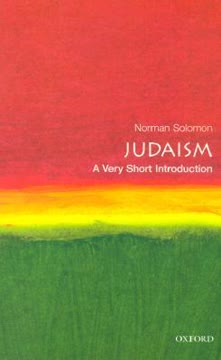
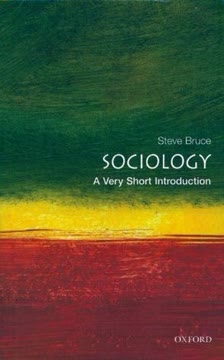

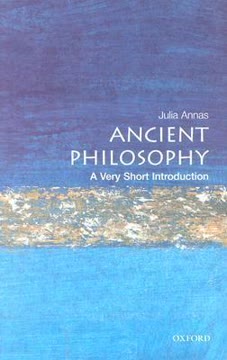
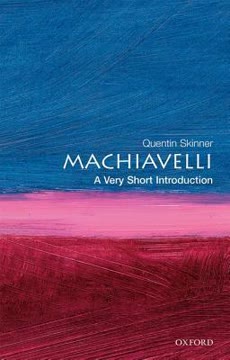
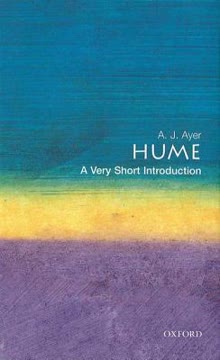

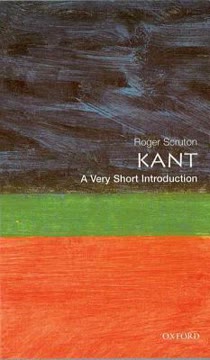
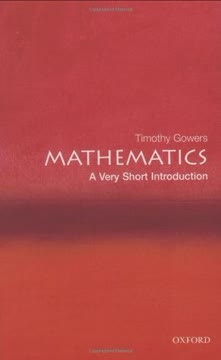
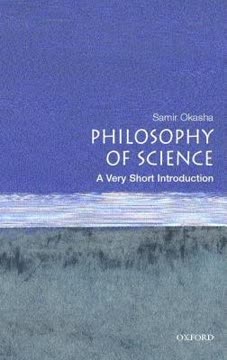
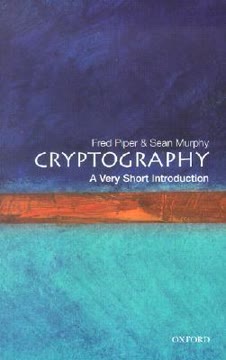
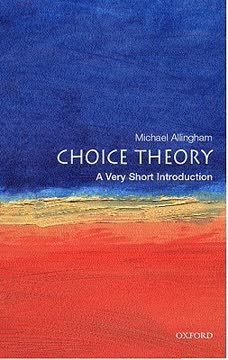
Download PDF
Download EPUB
.epub digital book format is ideal for reading ebooks on phones, tablets, and e-readers.




